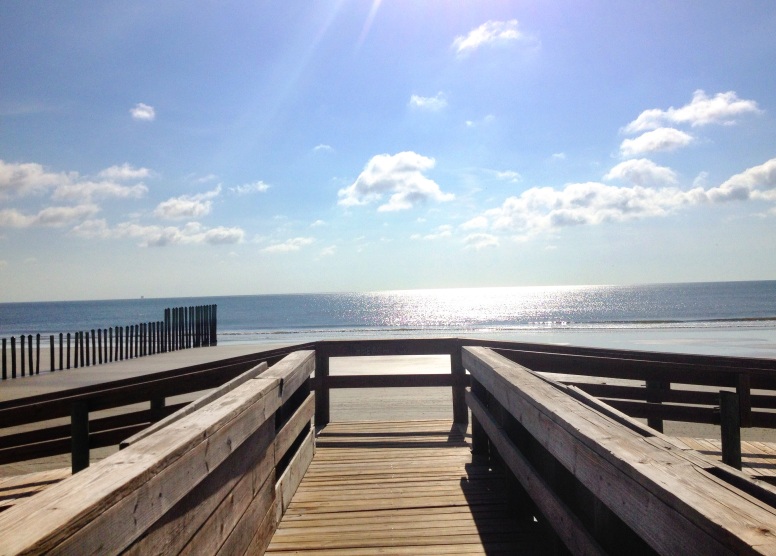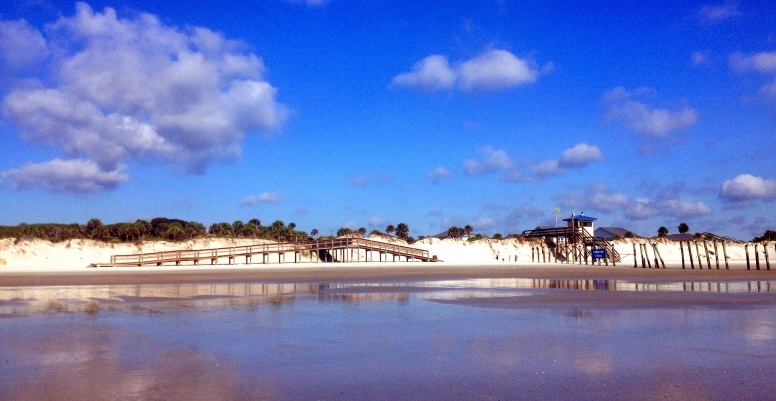Imagine if when we met someone new we asked “What’s your story?” instead of “What do you do?” Their answer would not only be more interesting, but it would provide the information we’re actually seeking. Most of us don’t care what someone’s job title is. What we want to know is what they are about. What’s important to them? Are they someone we want to get to know better?

Part of the story of the Hanna Beach crossover at The Poles is that it’s the northernmost entrance to several miles of continuous public beaches spanning more than 3 coastal communities.
As established in part 1 of this series, Tell Me A Story, telling stories is how we get to know each other and make sense of the world we share. All of us, just by being human, have stories.
“To be a person is to have a story to tell.” — Isak Dineson
One of my first writing students was an older woman who spent her days visiting her husband at an assisted living facility and maintaining the home they once shared. Their children and grandchildren visited regularly, and she participated and volunteered in a few organizations, but she spent much of her time alone. She enjoyed her family, gardening, and painting. Her life was full and happy (aside from the sadness associated with her husband’s health of course). I learned these things about her slowly over the nine-week course. But she told me her story the first night, when I asked each student why they had signed up for Beginning Creative Nonfiction.
She took my class because she wanted to learn how to write about her desperate escape from North Korea as a young girl, her terrifying journey to safety in South Korea, and then her immigration to the U.S. She wanted to document that experience for future generations of her family, people she would not be able to tell in person. And she wanted to leave that legacy for her children’s children’s children bad enough to take a community arts class to learn how to write it.
That was her story as she navigated the last stretch of her life. But it wasn’t her only story. As we got to know each other during the class and after, she also told me stories about life in North Korea before she had to leave, immigrating, adapting to a new culture and becoming an American, and raising a family. She had many stories to tell, but only one she felt compelled to write.

Beach dog’s story is happiness–finding it where ever you are, soaking it in, and sharing it with others.
We sometimes think only writers and other creative people have stories inside them demanding to be shared, but with all humans being born storytellers, there are more than a few people we meet who have stories they want to tell but aren’t sure how or who to share them with.
“There is no greater agony than bearing an untold story inside you.” — Maya Angelou
But if we are born to tell and crave stories, if we are living our lives in a sea of stories as we learned in What Is A Story, why does anyone have trouble writing them, or sharing them? Why is it ever hard to find one to tell?
Some of that difficulty stems from the language we use and our culture of story. We describe stories as elusive creatures that must be hunted, discovered, and captured. We tell each other and ourselves that stories are like shark teeth that few people can find, uncover, or receive as whispers from a coy muse.
Stories are not rare trinkets coughed up on the coastline. But they do need to be recognized, picked up, cleaned up, and told. Failure to recognize the stories of our lives and our imaginations causes a large part of writer’s block and creative angst.
We don’t encourage that recognition by constantly asking people what they do, which we all know translates to what’s your job title and what does society pay you for? Those of us who earn a living in creative fields may appear to have similar answers to what do you do and what’s your story. But even for artists, job titles reflect only what others see in us, not who we are or what we see in ourselves and the world around us.
When my student from North Korea was asked what she did she answered “Oh, I’m retired now.” It’s the same answer my grandmother gave toward the end of her life when her story was that she was the keeper of generations of family memories and lore. Earlier in my grandmother’s life she’d been a rebellious teen who risked not graduating high school by getting married before her senior year was over, obsessively frugal from surviving the Great Depression, and a young mother who traveled across the country alone with a toddler while pregnant so that she could see her sailor before he shipped out during WWII. She also bought the house she grew up in and raised her own children in it, thereby keeping it in the family for more than 100 years. She had volumes of stories about her experiences and the lives of several generations before her, and she told them to anyone who would listen, or who sat near her at holidays, reunions, weddings, and funerals. But she wouldn’t say, or even think, any of that when asked what do you do.
I lost touch with the woman from North Korea many years ago and I don’t know if she finished writing her escape story. When my grandmother died, she took all of her stories with her. Nobody ever thought of writing, recording, filming, or otherwise preserving everything she knew, and now we’re left with a handful of black and white photos of people who lived more than a century ago, that we know nothing about. I didn’t realize while my grandmother was still with us, or when I was helping my student, just how vital story is to our lives. Stories not only make sense of our lives and teach us about each other and the world. They also teach us about ourselves. Our stories, real or imagined, shared or closely guarded, make us who we are.
Understanding the power of story has changed how I live. I notice details. I interact with not just people, but also places, and things. And I’ve finally started sharing the stories I tell and write–through the news articles and columns I published in the past, writing classes I’ve taken and taught, this blog, and soon the handful of both fiction and nonfiction manuscripts I have in various stages of polishing, finishing, and dusting off. All of them are pieces of my overall story, but can stand alone, to entertain, inform, caution, or guide whoever reads them.
“Trust your story.” — Neil Gaimen
My answer to what’s your story would have been different through the years depending on where and who I was at the time, but today my story is stories–living them, recognizing them, telling them, writing them, and helping other people write theirs.
What’s your story?
This is the second of a three-part series on story. Part three will be Stories Change.

